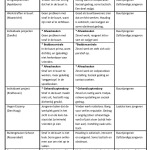Gerald S. Dickinson – Blue Moonlight Rising: Evictions, Alternative Accommodation And A Comparative Perspective On Affordable Housing Solutions In Johannesburg
No comments yetSocial Science Research Network, 2011.
Abstract:
The City of Johannesburg Metropolitan Municipality v Blue Moonlight Properties 39 (Pty) Ltd and Another (338/10) [2011] ZASCA 47 (30 March 2011) is a welcomed addition to the eviction jurisprudence in South Africa. Courts have jostled for years with the question of whether socio-economic rights should be enforced in the context of adequate housing and evictions. Today, the central questions in comparative constitutional law now deal with how courts should enforce such rights. In other words, what are the remedies for violations of socio-economic rights? The usual proposed remedies are coercive orders aimed at guaranteeing occupiers the denied rights directly, planning orders or procedural benefits. Amidst Blue Moonlight’s increased interest amongst academics, practitioners and jurists as an example of South Africa’s ‘new normality assumption’ and its realisation of procedural benefits to a person facing imminent eviction from private property, is a comparative housing policy yet to be discovered and considered in South Africa. A policy-oriented interpretation of the text of the lower court’s opinion in Blue Moonlight reveals the policy blueprint of several housing voucher programs currently operating in the United States that may serve as a new model for how to enforce socio-economic rights for occupiers facing imminent eviction — the Blue Moonlight remedy. Vouchers are a primary mechanism for providing affordable, safe and decent housing to the poor in the United States and ought to be considered by academics, policymakers, jurists and public officials as one of many potentially innovative solutions to Johannesburg’s housing woes.
Download the paper: http://papers.ssrn.com/sol3/papers.cfm?abstract_id=2037758
You May Also Like
Comments
Leave a Reply






